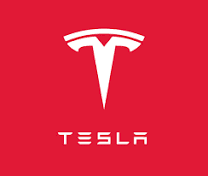
Tesla, an automaker with the highest market capitalization in the globe, is under the heaviest public pressure since its entrance into the Chinese market.
On Aug 14, a consumer in Hubei told the public that Tesla had refused to deliver his Model 3 sedans, which he bought on Pinduoduo (PDD) platform.
PDD is currently the second largest e-commerce platform in China with 628 mm active buyers. The Chinese e-commerce giant offers value-for-money products to numerous consumers in China.
Some 20 days ago, PDD jointly commenced a promotional activity with an automobile dealer to give each selected buyer a subsidy of RMB20k for the purchase of Model 3.
Model 3 is the first dedicated model manufactured in China since its entrance into China. The official selling price is RMB291.5k.
Tesla took this activity as a challenge to its direct sale system and made a harsh statement to deny any official cooperation with PDD.
However, the activity still continued after the statement. There were 5 PDD users received the subsidy from PDD, and the Hubei consumer is one of them. In an interview by the media, the Hubei consumer was told that his order will be placed in Tesla's official website.
In the process of the promotional activity, Tesla amended the regulation for car purchase in China and required a purchaser to place an order through the official website and complete the purchase in an offline store.
But Tesla China was informed about the amendment of the regulation just before the delivery of Model 3 and immediately refused to make the delivery to that consumer.
What Tesla did aroused extensive discussion in Chinese media and lawyers. "Refusal of delivery by Tesla is a default" said by Qiu Baochang, an expert of the Expert Committee of China Consumers Association (CCA), an official organization established in China to defend the rights of consumers.
The refusal of delivery by Tesla even became more controversial after the identity of the Hubei consumer was disclosed. It was reported that the Hubei consumer was a courier.
Courier is a common blue-collar work in China. According to a survey, the average monthly salary of a courier in China is RMB6,200. "If a courier makes 5,000 deliveries in a month and earns RMB1 for each delivery, it will take him 10 years to save RMB250k" a media said.
Due to the high selling price, Tesla mainly focuses on the high income group in tier one and two cities. The selling price of Model 3 is RMB271.5k. In 2019, the average annual income of a Chinese people was RMB17k. Thus, it costs 15 times of gross annual income to buy an ordinary model of Tesla.
Tesla's unyielding attitude towards consumers triggered rage of Chinese netizens who believed that Tesla, as a US company, did not show enough respect to common consumers in China. It was obvious that Tesla considered protecting its proprietary direct operating system was more important than offering a car to a consumer in Hubei.
In a sense, their doubt is somewhat rational. Protecting its proprietary direct operating system is always one of the things that Musk and Tesla care most.
Musk started endless lawsuits and lobbying from 2013 with every state in the US, aiming to protect Tesla's proprietary direct operating system. In 2015 alone, Musk spent US$1.5mm on law suit origination in Texas. Till today, there remains 18 states in the US that do not welcome Tesla's proprietary direct operating system.
To continue to play a hardball to protect its direct operating system or compromise to mass Chinese consumers? It is a situation that Tesla has never expected.
According to a practitioner of the automobile industry, young people in small Chinese towns have exceeded 300mm and many of them have similar experience to the Hubei consumer. They work more than 10 hours every day on average to gain income with their hard work.
Chinese companies have started noticing such consumer group. The emergence of PDD is also deemed as a key mark for rising of young consumers in small Chinese towns.
Tesla's Chinese stores mainly concentrate in tier 1 and 2 cities as well as provincial capitals. Take Hubei for example, the only Tesla store is located in Wuhan, the capital city in the province, where is the nearest store for rural consumers in Hubei to purchase a Tesla car.
Therefore, Tesla's service system has not yet covered such young people in small towns. But PDD's activity suddenly pushed them to Tesla. This led to a dispute.
No matter what the result will be, how to approach and serve such unmet young people in small towns is for sure an important lesson that Tesla must learn.
* This is a contributed article and this content does not necessarily represent the views of techtimes.com









